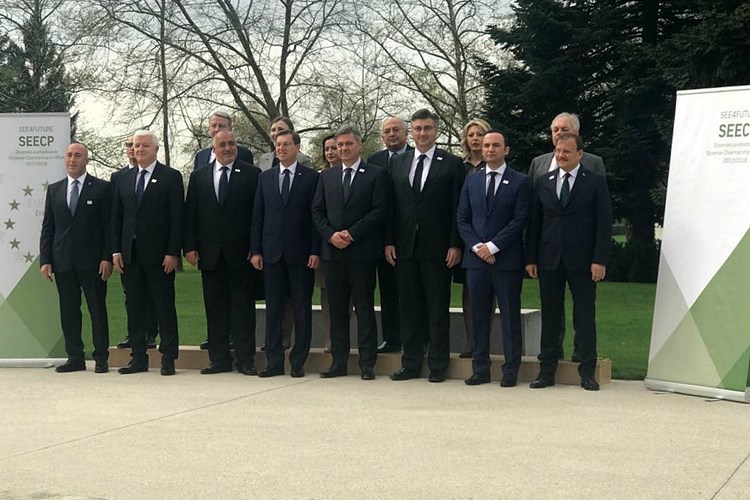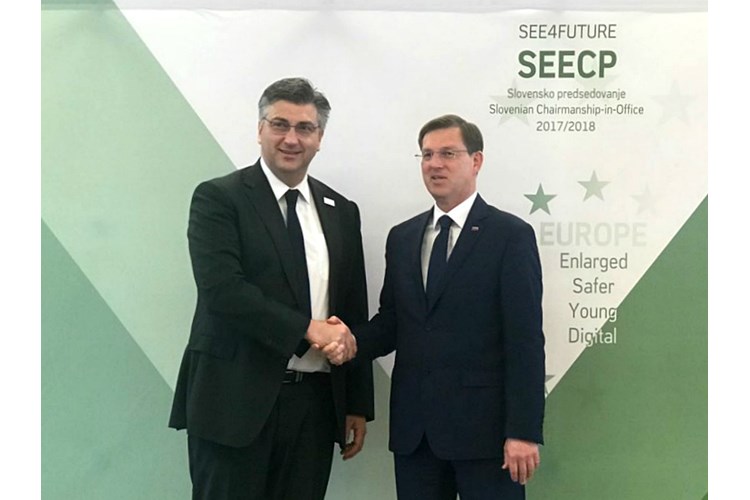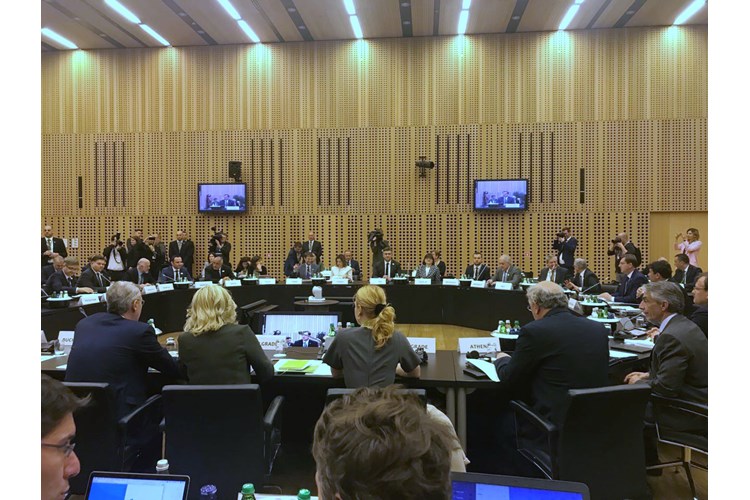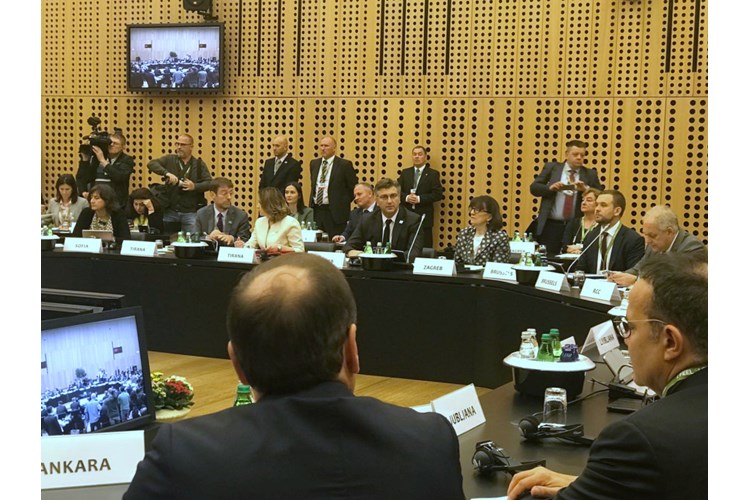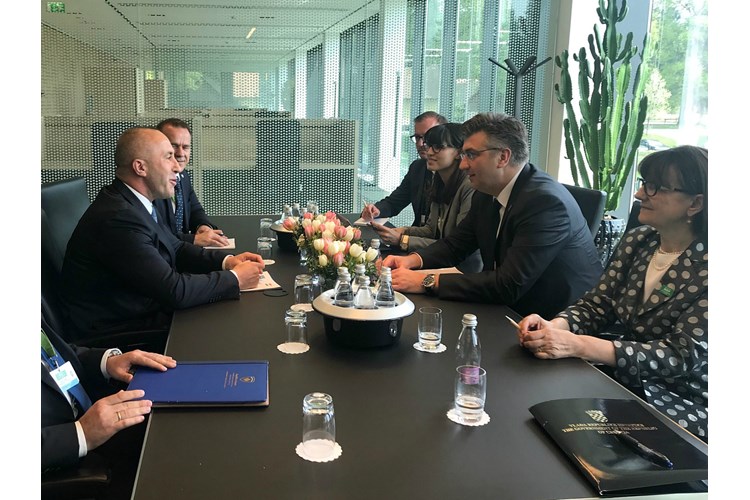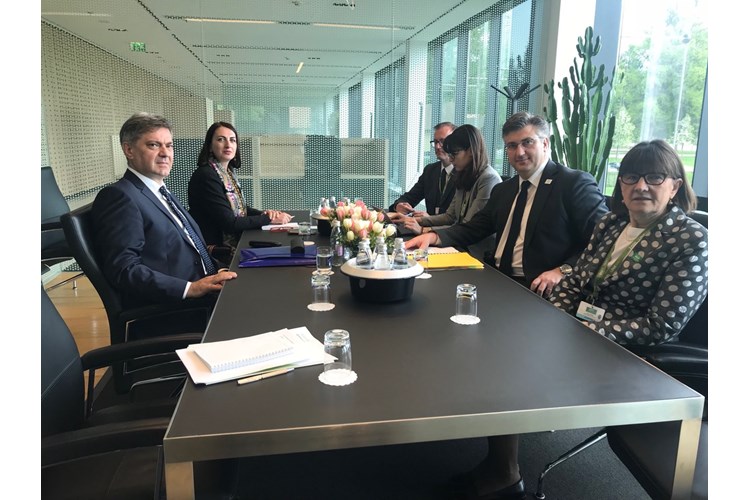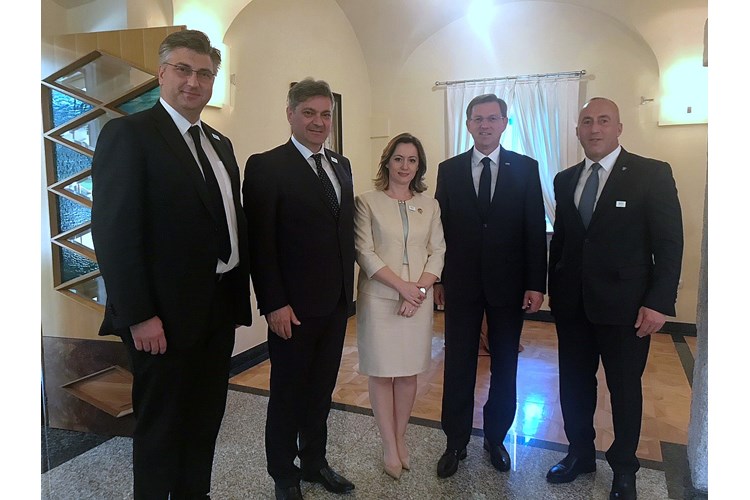- Published: 24.04.2018.
PM Plenkovic at the summit meeting of the South-East European Cooperation Process (SEECP)
Prime Minister Andrej Plenković participated today at the summit meeting of the South-East European Cooperation Process (SEECP).
Addressing the press after a summit meeting of countries included in the Southeast European Cooperation Process (SEECP), Plenkovic commented on the current situation with Slovenia saying that that he was sorry that contentious issues could spill on to the people, which now is the case with fishermen in both countries who fish in Savudrija Bay or Piran Bay as it is known in Slovenia.
With reference to Slovenia asking the European Commission to mediate in the issue of old foreign currency accounts and announcements that Slovenia might sue Croatia if it does not suspend proceedings against Ljubljanska Banka before Croatian courts, Plenkovic said that this position was wrong as "Croatian courts act independently of Croatia's government."
As far as the border dispute is concerned and with regard to the arbitration ruling and Slovenia's announcement that it would sue Croatia to the European Union Court of Justice if Croatia doesn't agree to implement the arbitration decision, Plenkovic repeated Croatia's firm position that although it entered the proceedings in good faith, it left the arbitration procedure because it had become compromised.
Plenkovic recalled that last year, Croatia offered Slovenia a framework for a bilateral agreement about the "only real outstanding issue," and that within that framework it would have been possible to find a "just and mutually acceptable solution."
Asked about Slovenia's announcement that it would block Croatia's entry into the Schengen Area if Croatia did not agree to implement the arbitration ruling, Plenkovic said that blockades were not a good way to resolve issues and that this move would not be good for Slovenia either in whose interest it would be for Croatia to enter the Schengen Area as soon as possible in order to supervise illegal migrations.
He added that Croatia will fulfill all the technical criteria to enter the Schengen Area and that the aim was to do that by 2020 when Croatia is set to chair the European Union.
Plenkovic thanked his Slovenian counterpart, Prime Minister Miro Cerar whom he met briefly on the margins of the summit, for the good organisation of the summit and good choice of topics which Slovenia as the summit's host underscored, particularly assistance to countries in the region on their journey to Euro-Atlantic integration.
Cerar said that he exchanged a few words with Plenkovic but that there was not any opportunity to discuss problematic issues in detail.
Croatia's prime minister met on the margins of the summit with Bosnia and Herzegovina's Prime Minister Denis Zvizdic and invited him to visit Croatia in May to discuss overall relations between the two countries.
In reference to reservations in Sarajevo over the construction of the Peljesac Bridge, Plenkovic said that there was no doubt that the bridge would be located on Croatian state territory and that it will be built as planned.
The talks with Kosovo Prime Minister Ramush Haradinaj, focused on increasing economic cooperation and Croatian investments in Kosovo but on the Croatian minority living in Kosovo, Plenkovic explained.
Asked about announcements that regional authorities in Austria's Carinthia region might ban the commemoration in Bleiburg in May because of Ustasha symbols and because the extreme European right gathers is allegedly gathering there and whether Croatia's parliament should withdraw its sponsorship of that event, Plenkovic said he did not see any reason for parliament not to sponsor the event however, people attending Bleiburg have to adhere to Austria's laws.
Speaking about the latest tension with Serbia in light of the incident caused by Vojislav Seselj during the visit by Croatia's parliamentary delegation to Belgrade and later statements by Serbia's Defence Minister Aleksandar Vulin, Plenkovic said that Croatia and Serbia have to defuse the tensions after the positive steps that had occurred recently in their bilateral relations.
He reiterated however that the decision by Croatia's delegation to cut short its visit to Serbia after Croatia's flag had been desecrated, was the right and only thing to do in those circumstances.
Text: Hina
